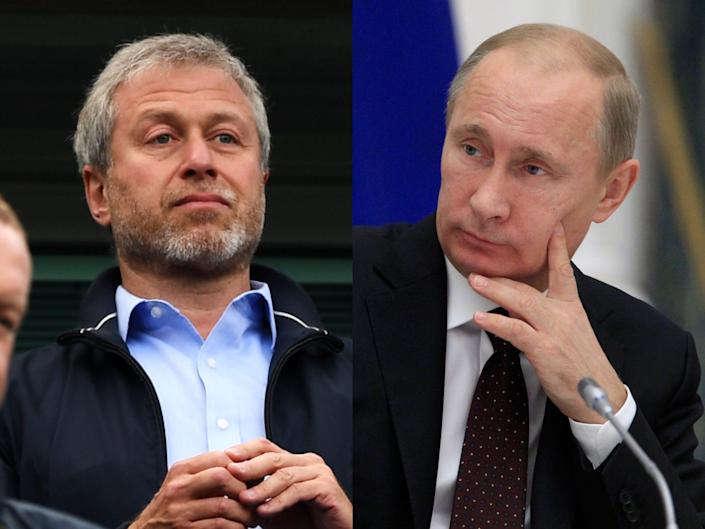
-
Sanctions on oligarchs are “symbolic” and a “PR exercise,” a financial-crime expert told CNN.
-
Some of the sanctioned oligarchs have denied being closely connected to Putin.
-
There’s doubt about how much influence oligarchs have over the Kremlin.
The West has been slapping sanctions on Russian oligarchs since President Vladimir Putin ordered troops to invade Ukraine — but some think the measures are merely public-relations exercises that are unlikely to have much effect.
“I think when it comes to sanctions on oligarchs, they are, frankly, symbolic,” Tom Keatinge, the director of financial crimes and security studies at the Royal United Services Institute, told CNN.
When asked whether it was a PR exercise, he added: “It’s definitely a PR exercise.”
The West’s package of sanctions — which also includes limiting trade, banning transactions with Russia’s central bank, and cutting off access to currency reserves — is directed at hobbling the country’s economy, cutting funding to its military, and putting pressure on Putin to end the conflict.
But some commentators doubt how much influence oligarchs have over the Kremlin or are prepared to use, while some of the oligarchs themselves deny being close to Putin.
Oligarchs are ‘just Putin’s footmen’
The measures taken against oligarchs — which include the seizures of high-profile assets like properties, private jets, and superyachts — “put the whole issue of sanctions in the public eye” but are unlikely to change Putin’s viewpoint, Keatinge told Channel 4 News.
Mikhail Khodorkovsky, an exiled Russian oligarch, has made similar comments. The former CEO of the Russian oil giant Yukos, an outspoken critic of the Kremlin, has said in interviews that sanctions on Russian oligarchs alone won’t be enough to persuade Putin to abandon the invasion of Ukraine.
Western nations have suggested that sanctioned oligarchs yield considerable influence over Putin and the Kremlin.
When it sanctioned Roman Abramovich, for example, the European Union said he had “privileged access” to Putin, though Abramovich has repeatedly denied having close personal ties with him.
But Khodorkovsky has said oligarchs are “just Putin’s footmen” and “cannot influence him.”
Keatinge told CNN it was “pretty unlikely” that prominent oligarchs would use “what little leverage they have with Putin” to speak out against the invasion of Ukraine.
“We’ve seen what happens if people cross Vladimir Putin,” Keatinge told the outlet. “And these individuals who are being sanctioned won’t want to go the same way.”
Some oligarchs have lashed out, denying they have ties to Putin and calling the sanctions unfair.
“What did we do wrongly, except for doing business in Russia?” Mikhail Fridman — who founded the largest private bank in Russia and is on EU and UK sanctions lists — told CBS.
Even if they’re believed to have limited effects, the sanctions are making life uncomfortable for oligarchs. Fridman said he was “practically under house arrest” after being sanctioned and had to apply to the UK government to spend money. Some people, meanwhile, have been moving their yachts, private jets, and shares to dodge sanctions.
Despite criticizing their limitations, Khodorkovsky, the exiled oligarch, has ultimately supported sanctions on Russian oligarchs because he says Putin can use these people to influence the West.
“It is absolutely important to stop all of these purse holders of Putin’s until the war ends,” Khodorkovsky told CNN last month. He said the West needed to sanction oligarchs, cut off all international cash flows to Russia, and block Putin’s bankers.
“That’s the only thing that will stop the war,” he said.
Read the original article on Business Insider




